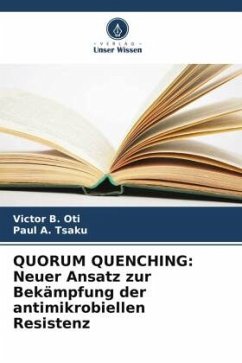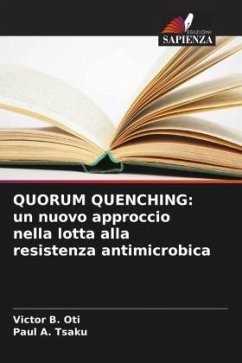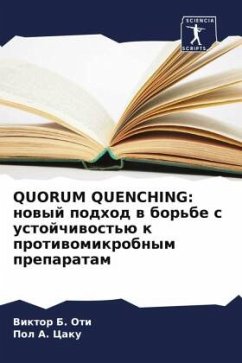
QUORUM QUENCHING: New Approach in Fighting Antimicrobial Resistance
Versandkostenfrei!
Versandfertig in 6-10 Tagen
24,99 €
inkl. MwSt.

PAYBACK Punkte
12 °P sammeln!
Treatment of microbial infections with antibiotics has created a harsh environment whereby bacteria have evolved devising means of survival which eventually leads to multidrug resistance. They usually engage in a cell-to-cell communication known as quorum sensing (QS). QS is a mechanism where bacteria communicates intercellularly and controls the pathogenicity of organisms by regulating gene expression, including virulence determinants. QS is a signalling system that occurs in the pathogenic world to sense its own population density and synchronize the expression of the virulence genes. Interf...
Treatment of microbial infections with antibiotics has created a harsh environment whereby bacteria have evolved devising means of survival which eventually leads to multidrug resistance. They usually engage in a cell-to-cell communication known as quorum sensing (QS). QS is a mechanism where bacteria communicates intercellularly and controls the pathogenicity of organisms by regulating gene expression, including virulence determinants. QS is a signalling system that occurs in the pathogenic world to sense its own population density and synchronize the expression of the virulence genes. Interfering with the microbial QS system by quorum quenching (QQ) has been suggested as a potential strategy for disease control. QQ is a promising approach which may lead to the development of very effective next generation antibacterial drugs based on interfering with bacterial communication to block QS-mediated pathogenic infections. This book provides an overview on the basic principles and molecular mechanism of QS, and the use of QQ as a potential approach in fighting the menace of microbial pathogenicity and antimicrobial resistance.












